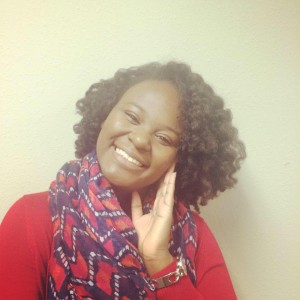Careers in Student Affairs Month: “Student Affairs Is….”
Written by Yolande Graham
Student Affairs: the most exciting yet ambiguous term to any undergraduate who has just made the decision to pursue a career in it. Once your mind is set on getting a master’s degree in student affairs, one of the most common questions you will hear is, “What will you do with that?” To which we often respond with the cliché phrase, “work with college students!” This was my experience, one that I am sure is common to many who select this path less chosen (if I may borrow a phrase from Robert Frost).
Student affairs encompasses so many different areas that it is hard to give a single definition that does the field justice. I will define it as “any area within a college or university that has to do with the development of college students.”
Development is a word you must get used to if you plan to get a master’s degree in student affairs. In class we are always looking at how students are developing. Are they following Erikson’s stages of development? Are they where they need to be developmentally in Chickering’s seven vectors (which will become your best friends by the time you are about five weeks into your master’s program…especially at Baylor!)? We look at different frames that can help us to understand how varying college campuses can affect student development and institutional functioning. How do human resource considerations, structural facets, institutional politics, or symbolic acts and events effect students? We even spend time looking at how higher education itself developed throughout its history. It is all about development.
As I have come to see in my short time at Baylor thus far, student affairs is all about development. In our classes we are developing our skills and understanding so we can apply what we learn to our current and future interactions with students and to our apprenticeships. We are developing the ability to look at our experiences as guides for the way we work in the university setting. We are developing as professionals and as educators, so that we can help those we work with to develop in their own capacities.
I am one of the graduate apprentices for Campus Living & Learning for Academic Initiatives. I work with my supervisor on matters related to program directors for Baylor’s eleven Living Learning Programs (LLPs) as well as with Baylor’s thirteen Faculty-in-Residence (FIRs). In my specific apprenticeship, I do not often work directly with students, which was a little disappointing to me at first. In spite of this, my position has allowed me to get a behind-the-scenes look at what goes into the programming, administration, and interactions that shape students’ experiences in the residence halls at Baylor. I know that everything I am learning in this position will be applicable to my work no matter what path of student affairs I choose to take.
Student affairs is an ever-changing field, working to meet the needs of every student who enters the higher education system. Good student affairs professionals and educators are continuously working to assist, challenge and inspire students wherever they are at in their journey.
This is what student affairs is to me.
Written by Yolande Graham, Baylor HESA 1st-year student
